- Home
- Connie Willis
To Say Nothing of the Dog Page 11
To Say Nothing of the Dog Read online
Page 11
Only one thing in all this tangled account was clear—he was not my contact. He knew nothing about what it was I was supposed to do at Muchings End. If it was Muchings End and I hadn’t gotten that wrong, too. I had gone off with a contemp and a complete stranger—to say nothing of the dog—and left my contact waiting on the station platform or the tracks or in a boathouse somewhere. And I had to get back there.
I looked back at Oxford. Its distant spires shone in the sun, already two miles behind. And I couldn’t jump overboard and walk back because that would mean leaving my luggage behind. I’d already abandoned my contact. I couldn’t abandon my luggage as well.
“Terence,” I said. “I’m afraid I—”
“Nonsense!” someone ahead of us shouted, and there was a splash that nearly swamped the boat. The covered basket, which was sitting on the top of the Gladstone bag, almost went overboard. I grabbed for it.
“What is it?” I said, trying to see round the curve.
Terence looked disgusted. “Oh, it’s very likely Darwin.”
I kept imagining I was cured, when clearly I was obviously still suffering from a considerable residue of time-lag and was still having Difficulty Distinguishing Sounds. “I beg your pardon?” I said cautiously.
“Darwin,” Terence said. “Professor Overforce taught him to climb trees and now he’s taken to jumping down on innocent passersby. Turn the boat, Ned.” He gestured the direction I was to turn us in. “Bring us away from the bank.”
I did so, trying to see round the bend and under the willows.
“Landed bang in the middle of a punt with two Corpus Christi men and their girls last week,” Terence said, rowing us toward the middle of the river. “Cyril completely disapproves.”
Cyril did, in fact, look disapproving. He had sat up, more or less, and was looking toward the willows.
There was another, louder splash, and Cyril’s ears went back alertly. I followed his gaze.
Either I had been mistaken about my Difficulty, or my Blurring of Vision had taken on new dimensions. An elderly man was floundering in the water beneath the willows, splashing wildly and uselessly.
Good Lord, I thought, it is Darwin.
He had Darwin’s white beard and muttonchop whiskers and his balding head, and what looked like a black frock coat was floating around him. His hat, upside down, was floating several yards from him, and he made a grab for it and went under. He came up choking and flailing, and the hat drifted farther out.
“Good heavens, it’s my tutor, Professor Peddick,” Terence said. “Quick, turn the boat, no, not that way! Hurry!”
We rowed frantically over, me with my hands in the water, paddling, to make us go faster. Cyril stood up with his front paws on the tin trunk like Nelson on the bridge at Trafalgar.
“Stop! Don’t run Professor Peddick over,” Terence said, pushing the oars away from him and leaning over the side.
The old man was oblivious to us. His coat had billowed up like a lifejacket around him, but it obviously wasn’t keeping him afloat. He went under for more than the third time, one hand still reaching ineffectually for his hat. I leaned over the edge of the boat and grabbed for him.
“I’ve got his collar,” I shouted, and suddenly remembered that the one Warder had put on me was detachable, and fumbled for the collar of his frock coat instead. “I’ve got him,” I said, and yanked upward.
His head rose out of the water like a whale’s, and, also like a whale, spewed a great gasping spout of water all over us.
“‘Then once by man and angels to be seen, In roaring he shall rise.’ Don’t let go,” Terence said, clamping Professor Peddick’s hand onto the side of the boat and fishing for the other one. I’d lost my grip on his neck when he spouted, but his hand had come up, too, when he breached, and I grabbed for that and pulled, and his head came up again, shaking water like a dog.
I have no idea how we got him into the boat. The gunwale dipped sharply underwater, and Terence shouted, “Cyril, no! Ned, back up! We’re going under! No, don’t let go!” but our masses of luggage apparently acted as ballast and kept us from upsetting, even though Cyril came over at the last minute to look at the proceedings and add to the weight on this side of the boat.
Finally, I got a grip on one of his arms, and Terence maneuvered around till he was on the professor’s other side, bracing his foot against the portmanteau so the boat didn’t capsize and got a grip on the other, and we were able to haul him, drenched and pathetic, over the side and into the boat.
“Professor Peddick, are you all right, sir?” Terence said.
“Perfectly all right, thanks to you,” he said, wringing out his sleeve. What I had taken to be a frock coat was actually a black gabardine academic robe. “Fortuitous thing you came along when you did. My hat!”
“I’ve got it,” Terence said, leaning out over the water. What I had taken to be a hat was a mortarboard, complete with the tassel.
“I know I packed blankets. I remember Dawson setting them out,” Terence said, rummaging in his luggage. “What on earth were you doing in the water?”
“Drowning,” Professor Peddick said.
“You very nearly were,” Terence said, digging in the tin box. “But how did you come to be in the water? Did you fall in?”
“Fall in? Fall in?” the professor said, outraged. “I was pushed”
“Pushed?” Terence said, taken aback. “By whom?”
“By that murderous villain Overforce.”
“Professor Overforce?” Terence said. “Why would Professor Overforce push you in the water?”
“Larger matters,” Professor Peddick said. “Facts are inconsequential in the study of history. Courage is unimportant, and duty and faith. Historians must concern themselves with larger matters. Pah! A lot of scientific rigamarole. All history can be reduced to the effects of natural forces acting upon populations. Reduced! The Battle of Monmouth! The Spanish Inquisition! The Wars of the Roses! Reduced to natural forces! And populations! Queen Elizabeth! Copernicus! Hannibal!”
“Perhaps you’d better begin at the beginning,” Terence said.
“Ab initio. An excellent plan,” Professor Peddick said. “I had come to the river to reflect upon a problem I was having with my monograph on Herodotus’s account of the battle of Salamis by that method which Mr. Walton recommends as the perfect aid to thinking, ‘a rest to his mind, a cheerer of his spirits, a diverter of sadness, a calmer of unquiet thoughts.’ But, alas, it was not to be. For I had come to ‘piscatur in aqua turbida.’ ”
Oh, good, I thought, another one who makes no sense and spouts quotations. And in Latin.
“One of my pupils, Tuttle Minor, had told me he’d seen a white gudgeon just here along the bank while practicing for the Eights. Nice boy, wretched recitations and worse penmanship, but very sound on fish.”
“I knew I’d packed them,” Terence said, coming up with a green wool blanket. “Here,” he said, handing it to the professor. “Take that off and put this round you.”
Professor Peddick unbuttoned his robe. “His brother, Tuttle Major, was the same way. Dreadful penmanship.” He pulled his arm out of one sleeve and stopped, a peculiar expression on his face, and stuck his arm into the other sleeve.
“Always blotted his essays.” His hand groped wildly in the sleeve. “Translated ‘Non omnia possumus omnus’ as ‘No possums allowed on the omnibus.’” He made one last wild gyration and pulled his arm out of the sleeve, “Thought he’d never be able to sit exams,” and opened his closed hand to reveal a tiny white fish.
“Ah, Ugobio fluviatilis albinus,” he said, peering at its flopping. “Where’s my hat?”
Terence produced the professor’s mortarboard, and Professor Peddick dipped it in the river and then dropped the fish into the water-filled hat. “Excellent specimen,” he said, leaning over it. “Assistant to the Head of the Exchequer now. Advisor to the Queen.”
I sat there watching him examine the fish and marvelling at what we�
�d caught. A genuine eccentric Oxford don. They’re an extinct species, too, unless you count Mr. Dunworthy, who is really too sensible to be eccentric, and I had always felt a bit cheated that I hadn’t been there in the glory days of Jowett and R.W. Roper. Spooner was the most famous, of course, because of his gift for mangling the Queen’s English. He’d told a delinquent student, “You have tasted a worm,” and announced the morning hymn one Sunday as “Kinquering Congs Their Titles Take.”
My favorite don was Claude Jenkins, whose house was so messy it was sometimes impossible to open the front door, and who had arrived late for a meeting and apologized by saying, “My housekeeper has just died, but I’ve propped her up on a kitchen chair, and she’ll be all right till I return.”
But they had all been personalities: Professor of Logic Cook Wilson, who after two hours of steady orating, said, “After these preliminary remarks . . .” Mathematics professor Charles Dodgson who, when Queen Victoria wrote him praising Alice in Wonderland and requesting a copy of his next book, sent her his mathematical treatise Condensations of Determinants, and the professor of classics who thought a barometer would look better if placed horizontally rather than vertically.
And of course Buckland, with his household menagerie and his trained eagle who had strutted, wings half spread, down the aisle of Christ Church Cathedral during morning prayers. (Church must have been exciting in those days. Perhaps Bishop Bittner should have tried introducing animals to Coventry Cathedral when attendance lagged. Or Spoonerisms.)
But I had never expected to actually meet one in the flesh, and here he was, an excellent specimen, interestedly peering at a fish swimming in his mortarboard, and orating on the subject of history.
“Overforce propounds the theory that the study of history as a chronicle of kings and battles and events is obsolete,” Professor Peddick said. “‘Darwin has revolutionized biology,’ he says—”
Darwin. The same Darwin whom Professor Overforce had taught to climb trees?
“‘—and so must history be revolutionized,’ Overforce claims. ‘It must no longer be a chronicle of dates and incidents and facts. They are no more important than a finch or a fossil is to the theory of evolution.’”
Actually, I thought, they were utterly important.
“‘Only the laws underlying the theory of history are important, and they are natural laws.’ ‘But what of the events that have shaped history for good or ill?’ I asked him. ‘Events are irrelevant,’ Overforce said. Julius Caesar’s assassination! Leonidas’s stand at Thermopylae! Irrelevant!”
“So you were fishing on the riverbank,” Terence said, spreading the professor’s robe out to dry over the luggage. “And Professor Overforce came along and pitched you in?”
“Yes,” Professor Peddick said, pulling off his boots. “I was standing under a willow, hooking a worm to my line—gudgeons prefer blood-worms but Pseudococcidae will do—when that imbecile Darwin flung himself out of the branches and plummeted toward me like one of Satan’s angels ‘hurled headlong flaming from th’ ethereal sky, With hideous ruin and combustion down,’ and landed with a great splash that made me drop my line.” He looked darkly at Cyril. “Dogs!”
A dog, I thought gratefully. Darwin is Professor Overforce’s dog. Which still didn’t explain what it was doing jumping out of trees.
“He’ll end by killing someone.” Professor Peddick took off his socks, wrung them out, and put them back on again. “Leaped out of a tree on the Broad last Tuesday and knocked Trinity’s bursar flat. The man’s completely unbalanced. He fancies himself another Buckland,” Professor Peddick said, “but Buckland, for all his faults, never trained his bear to jump out of trees. Tiglath Pileser was always extremely well-behaved, and so were the jackals, though one wouldn’t want to dine at his house. Liable to be served crocodile. I remember one dinner party at which the meat course was vole. But he had two excellent Crucian carp.”
“Darwin made you drop your line . . .” Terence prompted, trying to get the professor back on track.
“Yes, and when I turned round, there was Overforce, laughing like one of Buckland’s hyenas. ‘Out fishing?’ he said. ‘Teh, tch. You will never attain the Haviland Chair idling your time away like that.’ ‘I am pondering the effects of Themistocles’ deception of the Persians at Salamis,’ I said, and he replied, ‘An even more idle pursuit than fishing. History is no longer a chronicle of mere events. It is a science.’
“‘Mere events!’ I said. ‘Do you consider the Greeks’ defeat of the Persian fleet a mere event? It shaped the course of history for hundreds of years!’ Overforce waved his hand as if to dismiss them. ‘Events are irrelevant to the theory of history.’ ‘Do you consider the Battle of Agincourt irrelevant?’ I said. ‘Or the Crimean War? Or the execution of Mary Queen of Scots?’ ‘Details!’ he said. ‘Did details matter to Darwin or Newton?’”
As a matter of fact, they had. As Lady Schrapnell is so fond of saying, “God is in the details.”
“‘Darwin! Newton!’ I said,” Professor Peddick went on. “‘You disprove your own argument by your examples. It is the individual that matters in history, not the population. And it is forces other than natural ones that shape history. What of courage and honor and faith? What of villainy and cowardice and ambition?’”
“And love,” Terence said.
“Exactly,” Professor Peddick said. “‘What of Antony and Cleopatra’s love? Was that irrelevant to history?’ I asked him that while he was in the water. ‘What of Richard the Third’s villainy?’ I said. ‘What of Joan of Arc’s fervor? It is character, not populations, that affect history!’”
“In the water?” I said blankly.
Terence echoed, “You pushed Professor Overforce in the water?”
“A push is an event, an incident, a fact,” Professor Peddick said, “and therefore irrelevant to Overforce’s theory. I said that to him when he shouted at me to pull him out. ‘Natural forces acting upon populations,’ I said.”
“Good Lord,” Terence said. “Turn the boat around, Ned. We’ve got to go back. I do hope he isn’t drowned by now.”
“Drowned? Impossible! A drowning is unimportant in his theory of history, though it be the drowning of the Duke of Clarence in a vat of malmsey! ‘What of murders?’ I said to him while he was splashing about, waving his arms and calling for help. ‘And what of help? They are irrelevant, for both require intention and morality, of both of which you have denied the existence. Where in your theory are purpose and plan and design?’ ‘I knew it!’ Overforce said, thrashing wildly. ‘Your theory of history is nothing but an argument for a Grand Design!’ ‘And is there not evidence for a Grand Design?’ I said, offering my hand to him to pull him out. ‘Is there only chance in your theory of history? Is there no free will? Are there no acts of kindness?’ I said, and pulled Overforce up onto the bank. ‘Surely you must admit now that the individual and the event are not irrelevant to history,’ I said, quite reasonably. And the villain pushed me in!”
“But he is all right?” Terence said anxiously.
“All right?” Professor Peddick said. “He is wrongheaded, ignorant, prideful, opinionated, puerile, and violent! All right?”
“I mean, he’s not in danger of drowning.”
“Of course not,” Professor Peddick said. “He has no doubt gone off to expound his misguided theories to the Haviland Committee! And left me to drown! If you two had not come along when you did, I should have shared the Duke of Clarence’s fate. And Overforce, that villain, would have had the Haviland Chair!”
“Well, at least no one’s killed anyone,” Terence said. He looked anxiously at his pocket watch. “Ned, take the lines. We must hurry if we are to take the professor home and be back to Iffley before the afternoon’s gone.”
Good, I thought. When we get back to Folly Bridge I can make some excuse for not going on to Iffley with Terence—seasickness or a relapse or something—and go back to the railway station. And hope my contact was still there.<
br />
“Iffley!” Professor Peddick said. “Just the place! Splendid dace fishing there. Tuttle Minor said he saw a split-tailed rainbow half a mile above Iffley Lock.”
“But shouldn’t you go back?” Terence said unhappily. “You should get out of those wet clothes.”
“Nonsense. Nearly dry. And this is too good an opportunity to miss. You’ve fishing lines, I presume, and bait?”
“But what about Professor Overforce?” I said. “Won’t he be worried about you?”
“Ha! He’s gone off to write about populations and teach his dog to ride a bicycle! Populations! History is made by individuals, not populations! Lord Nelson, Catherine de Medici, Galileo!”
Terence looked longingly at his pocket watch. “If you’re certain you won’t catch cold,” he said. “The thing is, I’ve an appointment at Iffley at two o’clock.”
“Then ‘Press on! while yet ye may!’” Professor Peddick said. “‘Vestigia nulla retrorsum,’ ” and Terence took up the oars with determination.
The willows dwindled to bushes and then to grass, and ahead around a long curve of the river I could see a gray church tower. Iffley.
I pulled out my pocket watch and counted out the Roman time. Five minutes till II. Terence would be on time for his appointment at least. And hopefully mine would wait for me.
“Stop!” the professor said and stood up in the boat.
“Don’t—” Terence said and dropped the oars with a clatter. I grabbed for him and caught the rug as it fell around his feet. The boat swayed dangerously, and water slopped over the gunwales. Cyril blinked, bleary eyed, and wobbled to his feet, and that was all we needed.

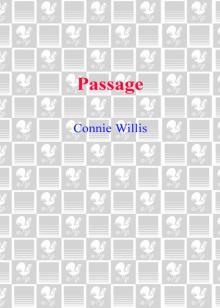 Passage
Passage Bellwether
Bellwether Blackout
Blackout Doomsday Book
Doomsday Book A Lot Like Christmas: Stories
A Lot Like Christmas: Stories Water Witch
Water Witch To Say Nothing of the Dog
To Say Nothing of the Dog Fire Watch
Fire Watch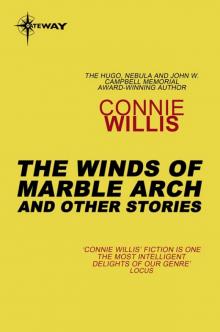 The Winds of Marble Arch and Other Stories
The Winds of Marble Arch and Other Stories Uncharted Territory
Uncharted Territory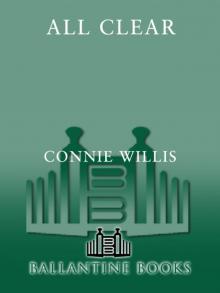 All Clear
All Clear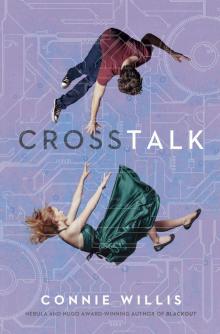 Crosstalk
Crosstalk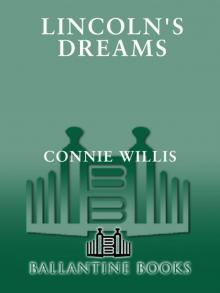 Lincoln's Dreams
Lincoln's Dreams Miracle and Other Christmas Stories
Miracle and Other Christmas Stories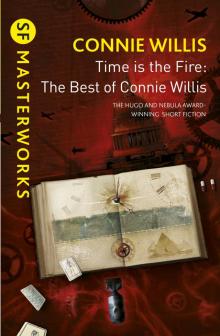 Time is the Fire
Time is the Fire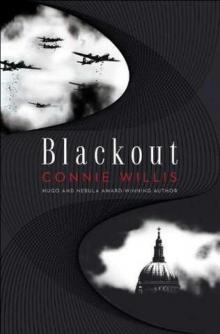 Blackout ac-1
Blackout ac-1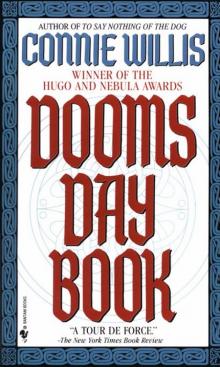 Dooms Day Book
Dooms Day Book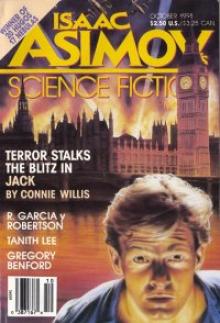 Jack
Jack The Doomsday Book
The Doomsday Book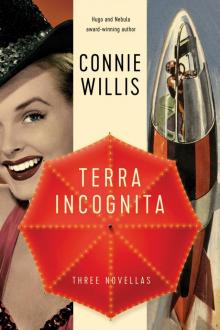 Terra Incognita
Terra Incognita The Best of Connie Willis
The Best of Connie Willis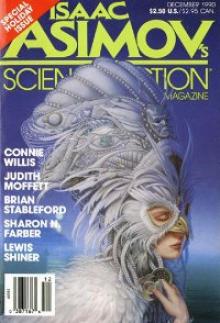 Cibola
Cibola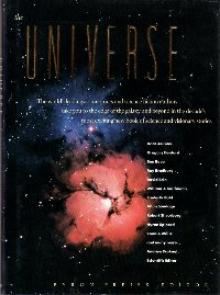 Schwarzschild Radius
Schwarzschild Radius Even the Queen
Even the Queen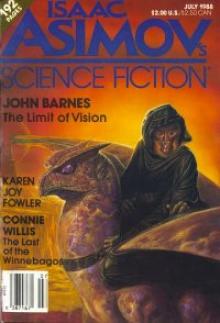 The Last of the Winnebagos
The Last of the Winnebagos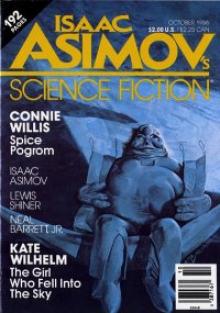 Spice Pogrom
Spice Pogrom Oxford Time Travel 1 - Blackout
Oxford Time Travel 1 - Blackout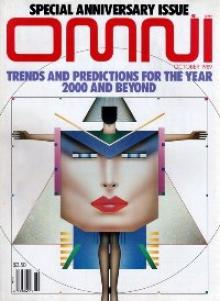 At The Rialto
At The Rialto A Lot Like Christmas
A Lot Like Christmas